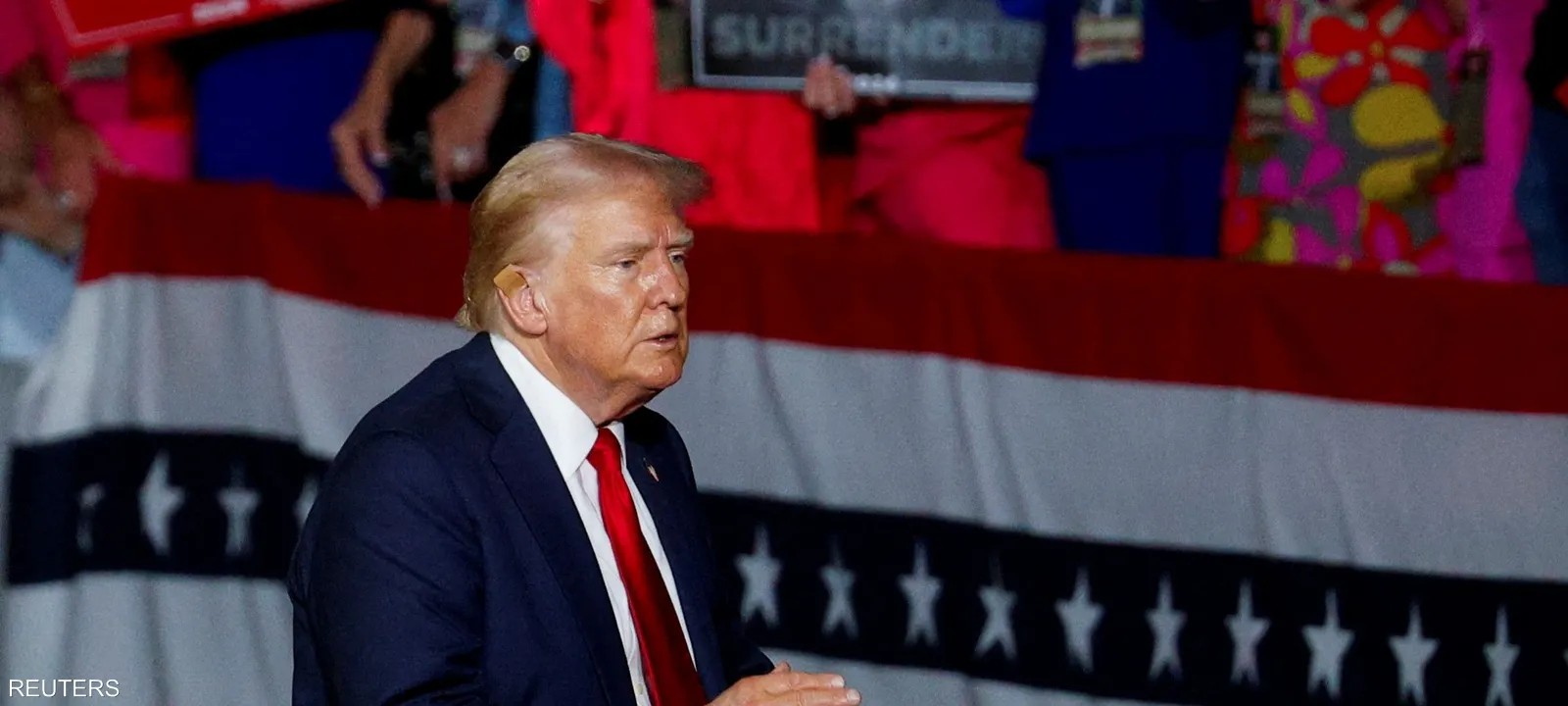Former US President Donald Trump laid out a plan to boost the growth of cryptocurrencies and turn the United States into a global powerhouse in crypto mining during his speech at the Bitcoin 2024 conference in Nashville, Tennessee, last Saturday.
Trump confirmed that if he returns to the White House, he will create a strategic reserve of Bitcoin in the United States.
But what does it mean to create a strategic reserve of Bitcoin?
Simply put, it means that a country decides to buy a large amount of the cryptocurrency Bitcoin and store it as part of its official reserves, just as it does with gold or foreign currencies. This decision is considered a bold and unconventional step in the world of investment, and it has important implications for the global economy.
“It will be the policy of my next administration to hold 100 percent of all Bitcoin currently held or acquired by the United States government... as the core of the Strategic National Stockpile of Bitcoin,” Trump said.
He also stressed that once he enters the White House, the persecution of cryptocurrencies will stop.
Trump also promised that on his first day in office, he would fire SEC Chairman Gary Gensler, whose term ends in 2026, considering that he deals harshly with cryptocurrency supporters, and would appoint a new chairman who believes in the importance of these currencies, as well as appoint a presidential advisor for this cryptocurrency, whose mission in the first 100 days of his upcoming presidency will be to design transparent regulatory guidelines in favor of cryptocurrencies.
Trump said he wants the United States to become the cryptocurrency capital of the world.
“The moment I take the oath, the persecution stops and the war against cryptocurrencies ends,” he said, referring to Democratic Senator Elizabeth Warren of Massachusetts as the industry’s archenemy.
He also promised to make regulations and laws governing the industry friendly to cryptocurrency mining operations in the United States, so that workers do not have to move to China.
Currently, the US government owns over 210,000 Bitcoins, which were acquired through illegal operations such as the online black market Silk Road and the Bitcoin Connect Ponzi scheme. The US government’s holdings are estimated to be worth around $14 billion at the time of writing.
The Silk Road was a popular online black market that served as a platform for selling illegal drugs and other illicit goods. It was considered part of the Darknet, meaning it was inaccessible to regular web browsers and offered a high level of anonymity to users. The Silk Road was eventually shut down by US authorities, and its founder, Ross Ulbricht, was arrested.
In this regard, Trump also pledged to commute the life sentence of Ross Ulbricht, who was convicted of running the Silk Road website, saying: “Enough is enough.”
The move confirmed rumors circulating among Bitcoin enthusiasts who hoped that Trump's endorsement of the creation of a strategic reserve would support the cryptocurrency's price.
The former US president also stressed his pledge to cancel any effort to create a central bank digital currency or a digital dollar, saying, “There will never be a central bank digital currency while I am President of the United States.”
For her part, Senator Cynthia Lummis of Wyoming said, Over the next five years, the United States will collect one million bitcoins, five percent of the world's bitcoins, and they will be held for at least 20 years and can be used for one purpose - reducing our debt.
She explained: The bill also stipulates that the United States will convert excess reserves at the 12 Federal Reserve banks into Bitcoin over five years, so that instead of holding an inflationary asset (the US dollar, which she said is designed to depreciate by at least 2 percent annually), it will be holding an asset with growth potential.
There is no denying that the value of Bitcoin has increased over time, but it is not higher now than it was before Trump's speech.
But Trump’s desire to add Bitcoin to the country’s strategic reserve doesn’t necessarily mean it will happen even if he is elected. Ari Paul, founder of cryptocurrency investment firm Blocktower Capital, tweeted about a week before the conference that he put the odds of creating a strategic Bitcoin reserve in the next four years at 10 to 1.
The Federal Reserve currently holds assets such as gold and foreign currencies (paper). They are used as lines of credit to keep the US economy stable, especially in times of crisis.
Many in the crypto community have criticized the Federal Reserve for encouraging the U.S. Treasury to print money during the COVID-19 pandemic, leading to persistent inflation. Senator Lumley believes that adding Bitcoin to the reserve could cut our debt in half.
Trump has dramatically changed his tone on Bitcoin since his previous presidency, when he called it a scam, and has since considered himself a cryptocurrency wizard.
Trump said Bitcoin does not threaten the dollar, noting that the current US government’s behavior threatens the dollar. He stressed that the threat to our financial future does not come from cryptocurrencies, but from Washington, DC.
It is noteworthy that J.D. Vance, Trump's deputy, is also a fan of cryptocurrencies, and he had stated that he owned between $100,000 and $250,000 in cryptocurrencies in 2022.






































